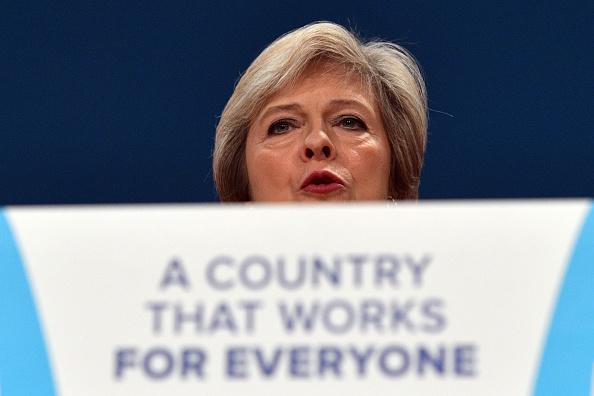George Osborne rejects Theresa May's claim that immigration causes unemployment
The former chancellor said the idea, espoused by Ms May, was contradicted by 'hard data'
George Osborne has rejected Theresa May’s suggestion that immigration causes unemployment – noting that the claim is contradicted by “hard data”.
The former chancellor said the claim, included in the Prime Minister’s Tory conference speech last month, “doesn’t really stack up” because of simultaneous record employment and immigration to the UK.
Ms May claimed to Tory delegates at the start of October that people across Britain found “themselves out of work or on lower wages because of low-skilled immigration” – and that this was a reason for restricting immigration.
Mr Osborne was speaking on Wednesday evening at the London School of Economics, which is launching a commission on how to spur economic growth despite a looming Brexit.
He may have used the event to hint at a possible political retirement, quipping that he was MP for Tatton “for the moment, while the seat exists”. He remains an MP despite his close ally David Cameron’s resignation and his sacking from the front bench by Ms May.
Asked about immigration, Mr Osborne told the audience of academics: “Remember, we are close to full employment in this country, so I think the argument that somehow immigrants are taking jobs that are leaving a load of people unemployment in Britain doesn’t really stack up because there aren’t loads of people unemployed in Britain.
“I’m not saying the quality of work is as good as it could be, you could improve the skills, but the hard data is that the employment rate is the highest in the world, the unemployment roll is the lowest since 1971.
“So I don’t really buy he argument that there’s a big pool of British people who don’t have jobs and who need jobs.”
The MP for Tatton also warned against complacency on the part of those who favoured free trade following Brexit, arguing that whether Britain embraced or retreated from globalisation was “up for grabs”.
He also issued a coded warning to Government ministers such as David Davis and Liam Fox who claimed they would make Britain a great “free trading nation” – arguing that they would have failed if Britain lost access to the single market.
“If you think of Brexit as an alliance between people who saw it as an opportunity for more free trade, less regulation, lower taxes, and other people who said they wanted to retreat from those sort of policies, retreat from globalisation – I’m siding with the former, but I’m not expecting that to be uncontested, I think that’s going to be a real contest,” he said.

“The question about trade – that’s up for grabs. We shouldn’t assume that post-Brexit, that’s just accepted. First, there is the place where 40 per cent of our exports go and you can’t really pretend to be a free trading nation if you erect trade barriers to that market.
“And I’m all for doing trade deals at the rest of the world but again, I don’t see at the moment that that’s a universally accepted consensus in our country. I think up for grabs is the kind of new relationship we want, not just with Europe but with the world and the kind of economy we want to offer.
“I would champion free markets, free trade, open societies, liberal democracies. They need defending, not just in this country, but around the world.”
Ms May has been notoriously coy on what her plan for Brexit is – but has confirmed she would seek to restrict freedom of movement in some way, and try to get the best trade deal possible following that. European Union leaders have been clear that membership of the single market is not compatible with restrictions on freedom of movement.
Mr Osborne’s scepticism about immigration and unemployment is backed up by most academic research on the subject. A major 2015 study of local areas by the London School of Economics found that immigration to Britain had not increased unemployment or reduced wages.
Join our commenting forum
Join thought-provoking conversations, follow other Independent readers and see their replies
Comments
Bookmark popover
Removed from bookmarks